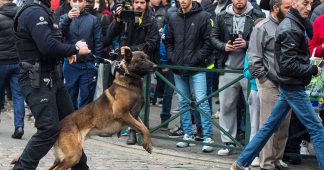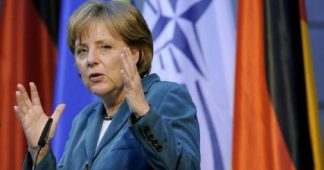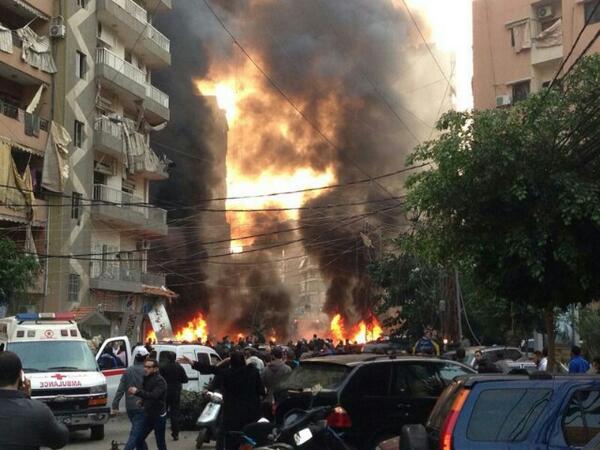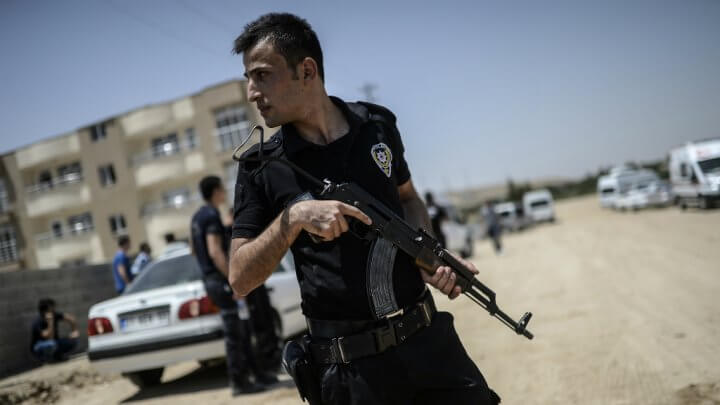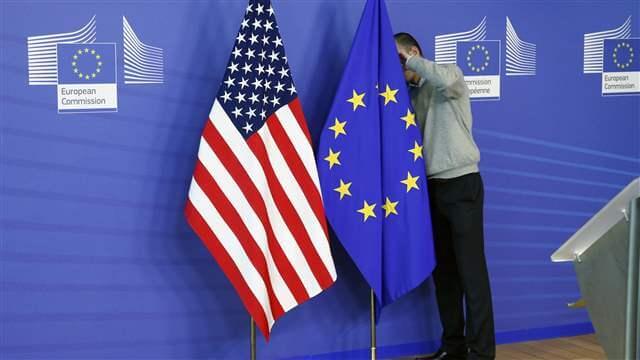By Christoph Vandreier
On Friday night, Anis Amri was shot and killed by police in Milan. There is growing evidence that the 24-year-old Tunisian drove the truck that killed twelve people on Monday and injured 50 at a Christmas market in Berlin.
Investigators report that they found Amri’s ID papers, mobile phone and fingerprints inside the truck that was used in the horrific attack. The Islamic State press agency has published a video, probably recorded a few weeks ago, in which Amri swears allegiance to the organization and calls for “attacks on unbelievers.”
Amri may well have been responsible for the attack. However, the event itself remains obscure, and the extraordinary circumstances behind the attack raise many questions. It is now clear that security services were well aware that Amri was planning terrorist attacks. He had been in prison in Italy, was arrested in Germany and put under surveillance for months. Although the legal basis existed, the security and judicial authorities refused to detain him.
Morevoer, given the manner in which the event is being used to weaken the government of Chancellor Angela Merkel and shift German politics even further to the right, it would be a mistake not to consider the possibility that sections of the state were involved in some manner—if not in directing the attack, then in creating the conditions in which Amri was allowed to proceed.
There is a long tradition in Germany of organizing state provocations for political purposes. In 1933, the Nazis organized the Reichstag fire and declared a semi-blind Dutch communist to be the sole perpetrator in order to crush the Communist Party and pass the Enabling Act, which sanctioned Hitler’s dictatorship.
The secret services also had a hand in the resignation of Chancellor Willy Brandt in 1974. Although they already knew that his personal assistant Günter Guillaume was a spy for the secret service of the German Democratic Republic (East Germany), they let the unsuspecting Brandt travel on holiday with Guillaume to completely discredit him.
The attack takes place amidst sharp conflicts within the German ruling class. Since Merkel opened Germany’s borders for a short time at the height of the refugee crisis in the summer of 2015, she has been bitterly denounced, including in the ranks of her own party.
These same forces are moving rapidly to exploit the terrorist attack to demand a sharp change in policy. The victims’ blood was barely dry when the leader of Bavaria’s Christian Social Union, Horst Seehofer, proclaimed that “immigration and security policy” must now be “reconsidered and readjusted.”
Some on the extreme right have reacted even more aggressively. The leading representative of Alternative for Germany (AfD), Marcus Pretzell, tweeted, “These are Merkel’s dead!” And just a few hours after the attack, the right-wing Humboldt University Professor Jörg Baberowski demanded the resignation of the interior minister and Merkel confidant Thomas de Maiziére.
In October last year, the Welt am Sonntag published an article under the headline, “Security officials eagerly await Merkel’s ‘Go.’” It reported “massive resistance” to Merkel’s refugee policy in the intelligence community and security agencies. The article cited a paper circulating in intelligence circles that called for stopping refugees at the border, even if the government had ordered the opposite.
The facts of the attack as known so far also point to some level of state involvement.
On Friday, in the Süddeutsche Zeitung, Heribert Prantl drew attention to the fact that the immigration authorities, prosecutors and judiciary could have easily arrested Amri, who had sought to procure weapons and had broken laws under the eyes of the secret service and police.
Prantl wrote that Amri could have been placed on the strictest registration and residency requirements, citing a “danger to security,” and then arrested if he breached the regulations. This was not done, however. Prantl asks: “Had the authorities accepted the risks Amri presented because they hoped to gain intelligence from keeping him under surveillance? And had the authorities conducting the surveillance said nothing to other authorities because they wanted to keep the findings to themselves?”
Before Amri came to Germany, he spent four years in prison in Sicily for arson, where he evidently was won to Islamic extremism. The prison police sent an extensive report regarding Amri’s “radicalisation and readiness to conduct Islamist terror.”
Despite this, Amri avoided deportation and travelled to Germany in mid-2015. According to the Süddeutsche Zeitung, this was only because the Italian authorities had not fed his data into the European Information System in time. The Italian authorities, however, deny this.
In Germany, Amri immediately joined an Islamist group led by the preacher Abu Walaa. According to the Süddeutsche Zeitung, German intelligence had an asset in this group and was well informed about its activities. The intelligence agencies knew that some of its members were preparing to fight for the Islamic State in Iraq and Syria or carry out terrorist acts in Germany.
Members of the security services reported that Amri was part of this group and had participated in exercises. He is said to have repeatedly talked about carrying out attacks.
Shortly after security service employees reported this, Amri was stopped for an ID check by two police officers in Friedrichshafen on Lake Constance. This ocurred on July 30 of this year. The police arrested him because he had been obliged to leave after his asylum application was rejected and he was not permitted to stay outside North Rhine Westphalia. He was detained in Ravensburg, but then released the next day, supposedly because a lack of papers meant he could not be deported.
At this time, the security services also knew from monitoring telephone calls and internet chats that Amri was planning something dangerous. According to broadcaster Bayrische Rundfunk, in March this year the risk register for terrorists contained an entry saying that Amri was seeking to recruit people from throughout Germany to “commit Islamist motivated attacks with him.”
Nevertheless, the federal prosecutor, who had taken over the investigation into the group around Abu Walaa in March 2016, sent the case against Amri to the state authorities in Berlin. The Berlin authorities kept Amri under surveillance around the clock, but in September this year the surveillance was halted under unclear circumstances.
Although his contact with the Abu Walaa group was documented by the secret service, and the Moroccan security authorities had warned their German colleagues in September and October of Amri’s plans for an attack, no action was taken.
Further questions arise from the aftermath of the attack itself. The police immediately arrested an innocent refugee from Pakistan on the basis of dubious eyewitness statements. He was presented as a strong suspect even though there was neither blood nor gunshot residue evidence to link him to the scene.
Only after media reports leaked out that Amri’s ID papers had been found in the truck did investigators admit that the refugee was innocent and that they were looking for Amri. On Friday, following a renewed inspection of the truck, it became known that Amri’s mobile phone had also been found.
The official explanation for the late finding of the ID papers is bizarre. Supposedly, other investigations had to be carried out first before anyone could inspect the truck’s cab.
This official story is further undermined by a tweet from one of the most well known right-wing extremists in Germany, the founder of Pegida, Lutz Bachmann. Just two hours after the attack, he wrote, “Internal information from the Berlin police leadership: culprit a Tunisian Muslim.”
If not just a pure coincidence, this tweet proves that the investigators already knew earlier who was responsible for the attack, and that a right-wing extremist, of all people, had been informed.
The close links of the intelligence agencies and the extreme right in Germany are well documented. For example, there are numerous indications that both far-right groups and state authorities were involved in the 1980 attack on the Oktoberfest. In the 1990s and 2000s, the extreme right-wing terrorist group NSU carried out at least ten murders under the eyes of the authorities. In both cases, considerable resources and energy were expended in order to cover up the connections.
The support, at least indirectly, of Islamist militias in Libya and Syria by the German government also strengthened the links between the German government and these forces, who were often able to travel back and forth between Europe, the Middle East and North Africa.

